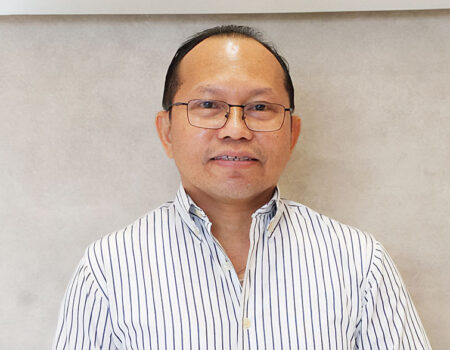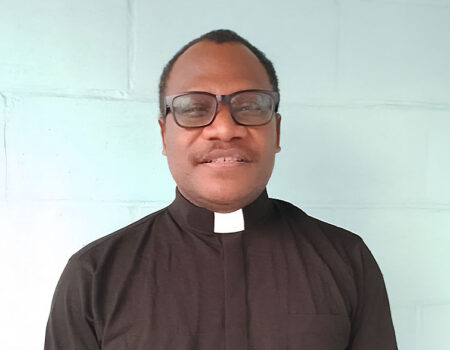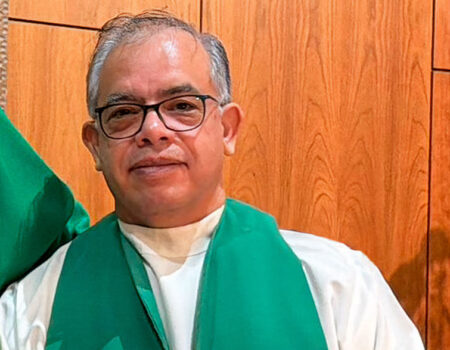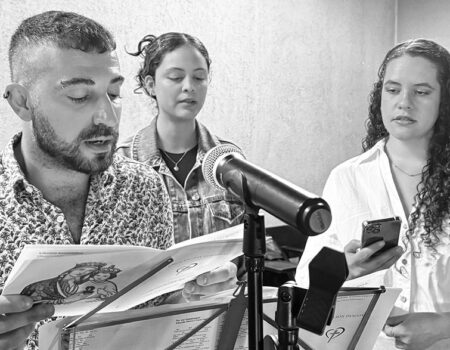When we were students at Chevalier College, Bowral – many years ago now – we used to barrack loudly and vigorously for our First XV Rugby team using our ‘war cry’:
‘Who are we, who are we, who are we
We are the boys of SHC.
C-H-E-V-A-L-I-E-R
Chevalier!!!’
Of course, this written expression of our long-ago full-throated gusto cannot do justice to our vocal, loyal enthusiasm of those days.
Should we have been asked at the time, no doubt we would have been hard-pressed to put into eloquent prose what chanting a war cry meant to us as students at OUR college, but you should have heard us!! It wasn’t simply putting on a uniform; that illustrated what we were, where we went to school. What stirred us came from within, a sense of pride, of loyalty; this was who and why we wanted to be sons of Chevalier.
Perhaps it is similar for us as MSC, we sons of Chevalier! We spoke of ourselves as being an MSC – we, too, had our uniform, our rule and way of life, and places to live and work. But this is not the same as being MSC. The former explains what we do, where, and how; the latter expresses who we are and why. And though being an MSC may have changed considerably over time and will undoubtedly be different in the future, being MSC is and will be unchanged. This is what counts, and reflection on this is where, I believe, our future lies.
As MSC, we too have our ‘war cry’: may the Sacred Heart of Jesus be everywhere known and loved forever, which is meaningful and precious for us; we know what it means and why it is so significant. This is because it expresses for us who and why we are MSC – wherever we are in whatever form of ministry our ministry takes. This applies equally to our youngest and oldest member, most senior professed and the junior among us.
But can we elaborate on this, what we call our charism, in 2024 and looking forward to the future, in – well – any sort of prose? Along with others I have been invited to try and do just that. My approach is to pose some questions and, well, raise other questions … as they say, why do you always answer a question with a question? Well, why not!
· What does it mean, for me, to be a Missionary of the Sacred Heart today and going forward;
· (how) does (my) being MSC make a difference to anyone;
· (what) does being MSC add to, contribute to, the building of the community of God’s people, to making God’s reign a reality in my life and in my world:
· Would anyone notice if (I) we weren’t around?
These are serious and challenging questions to pose, especially to one of an ageing group diminishing in numbers, a group that has (and is) making a significant contribution in many fields of ministry, and a group (I believe) that still has a real future through the well-educated, keenly enthusiastic, pastorally efficient younger members of our group. But does this optimism (rather than confidence) stem from living in and from the past, wishful thinking, clutching at straws, or heaven forbid, making real the cliché relating to rearranging the proverbial deckchairs?
So, who am I? Who are we? Are Missionaries of the Sacred Heart relevant going forward in today’s world, today’s Church? Are we needed? Do we have something to offer that is special and therefore worthwhile, and if so, what is it we can contribute so that we make a real difference? I believe we are that we do. But we also need to ‘get our act together’ by trying to identify what it is that makes us ‘special’, then why and how this makes who we are and why we are as MSC significant to our world and Church.
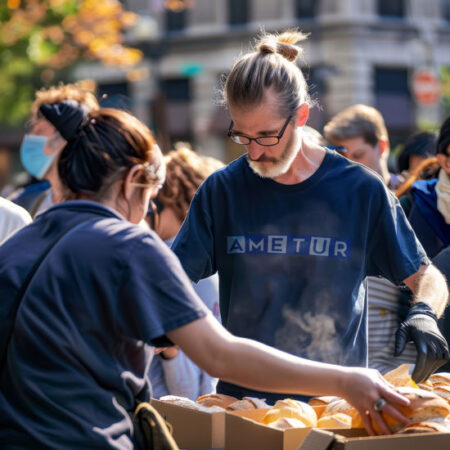
I have told this story before, but it bears retelling in this context. You can always pick an MSC! Following mass as a ‘supply priest’ in a parish, someone asked me if I was an MSC? Having assured the questioner that, yes, I was indeed an MSC, I asked why such a question. The response I received came as a surprise (shock!) … ‘you can always pick an MSC’! My reaction to this was a tentative ‘is that a good or a bad thing?’ but I received the reassurance ‘that’s very good’. I felt great! Not just for myself but also for the recognition and acceptance of what being an MSC is all about … or better still, what being MSC is all about. And this encounter tells me that we, being MSC, have a future and why.
MSC are recognised for who we are and the special charism we offer. Nothing grand, nothing spectacular, but rather ordinary, really, in a way like – well, Jesus. But Jesus from his very core, offering heartfelt response to each and all, whatever their need. This, of course, our confreres have been doing from the very beginning, and as long as we continue to do so, we have a future. However, not necessarily as, in the past, we thought we might have.
What this episode tells me is that we are not called to fulfil a set role in the Church and in the world but to be a presence. When it comes to the recognition, we are not out to fulfil a definition … what being an MSC implies and involves … but to be a special type of presence, to have a particular kind of relationship and engagement with people, where images seem more cogent than explanation. Michael Fallon – how long ago was it? – invited us to reflect on verbs rather than nouns when exploring our relationships with God, ourselves and one another: to speak of being faithful rather than faith, of loving rather than love … These days, the same approach is taken by Pope Francis, challenging us to reflect similarly.
Being MSC means being compassionate, being caring, being heartfelt, shepherding (and hasn’t that become the flavour of the month) … being Jesus, or as we MSC like to say, being on earth the Heart of God.
More recently, one of our novice directors challenged his novices that our MSC charism is not to focus on being sons of Chevalier but to model ourselves on the compassionate Heart of Jesus in his engagement with all, but especially with the marginalised, the needy … This was not to downplay the role of Jules Chevalier but to highlight that this is what he and we are called to be as MSC.
So, my pondering invites me to focus on being MSC rather than being an MSC because being MSC is how we are called, can contribute, can make a difference. Being MSC provides a helpful framework and support for our specific ways of contributing to mission and ministry. But is this where we are moving as we age and diminish in numbers? Do we hold on (hang in there!) for as long as possible? Or is time simply running out for such an approach?
Please don’t misunderstand me! I am not underestimating the importance of our religious congregation and its lifestyle. This has been my foundation, my formation, my functioning milieu. But this is being an MSC. And I am led to wonder whether this is where our emphasis should be moving forward. Is formation for ‘religious life’ what mission and ministry need to provide the world and the Church with those who want to be MSC?
I remember on our first profession day how the twelve of us had emerged from the Novitiate as ‘Butler boys’, well prepared for living religious life. This was good, of course, but the formation was more to train us how to be religious than to be MSC; indeed, our sights were set more on being ordained – yes, as MSC priests – than our lifelong commitment to being MSC. Time to take the signs of the time seriously! We cannot expect simply to produce new generations in our own image and likeness. What we need to reflect on is how to ensure the charism is handed on and to whom.
It has always been a source of reassurance that I am not alone; I am one of many, reflecting the image St Paul offers, that there are many parts of a body which need to work together if the body is to be efficient and effective; or perhaps the emphasis Paul gave when reminding us that God offers many gifts – not for our own benefit but for the good of all, and in this finding focus and function.
So, speaking of focus and function, and looking to the future for a ‘body’ and ‘gifts’ to provide a comparable reassurance, who will truly be MSC and will it be possible always to ‘pick and MSC’? By rights, every Christian can claim the title and role – we are all trying to be followers of Jesus. But in line with Paul’s teaching, some are called not to be special but to be His followers in a particular way, to be missionaries, those sent to proclaim the message and offer the ministry of God’s love revealed in Jesus, and to step up as Teresa of Avila wrote, to be in our own time and place the hands and voice – and especially heart – of Jesus.
Jules Chevalier saw this clearly, and his vision of missionaries of the Heart of Jesus included not only men who were priests and brothers but also men and women who were religious and lay. Circumstances ‘corralled’ us into a ‘religious blend’, but we are recovering the founder’s original vision through our Lay MSC and co-workers in parish, school and other ministries.
So today and into the future, I see myself, and happily so, as one among these many, and I share with the many both gifts and roles to complement those of others. Being MSC, we are brothers, priests, lay, all MSC in our own way – as the Founder envisioned it.
Who are … who are … who are we?
The response to that question seems to me to lie not so much in a focus on what it has meant to be an MSC, but rather what does being MSC really mean today and into the future and who, as MSC, are sent to be on earth the Heart of God.
Philip Malone, MSC




